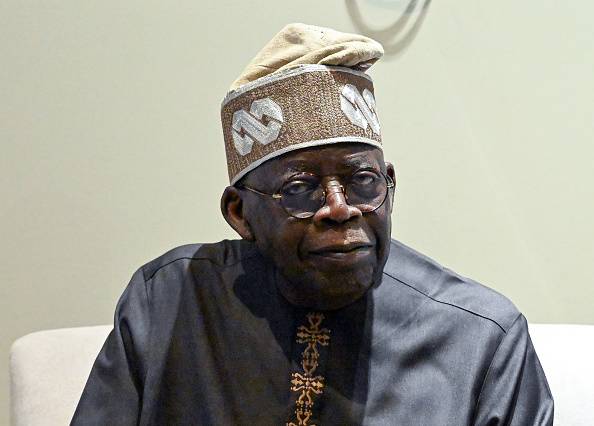Jacob Zuma warned the IEC not to “rush” the parties and said that to do so would “provoke” the “anger” among the supporters of MK. (Photo: Delwyn Verasamy/Mail & Guardian)
The outcome of the national and provincial elections is on a knife edge, with the Umkhonto weSizwe party (MKP) and 25 others calling on the Electoral Commission of South Africa (IEC) to delay the result while dealing with their claims of vote rigging.
MKP leader Jacob Zuma – who made a dramatic entrance to the Result Operation Centre (ROC) in Johannesburg shortly before the IEC was due to brief the media – threw down the gauntlet to the elections authority, saying there would be “no result” before their objections were heard.
Zuma said that there would be “trouble” if a result was declared before his party and others were “satisfied” that their grievances had been given a hearing and that “those responsible” should not “stand in our way.”
Zuma warned the IEC not to “rush” the parties and said that to do so would “provoke” the “anger” among the supporters of MK.
This after the IEC had already given the parties an extension until 6pm on Saturday to submit their complaints and other parties – including the Economic Freedom Fighters (EFF) – had accepted the outcome.
MKP is standing at 14% nationally and 45% in KwaZulu-Natal. Among the 25 smaller parties that joined them in protest were the South African Rainbow Alliance and the African Congress for Transformation.
They have given the IEC written notice that they will go to court should they not be granted the time they say they need to back up their complaints with evidence.
“Nobody is going to die if the results are not announced tomorrow,” Zuma told reporters.
He did not give details of the party’s complaint but said it was “serious” and suggested that the party was ready to go to court to prevent the release of the final results, scheduled for 6pm on Sunday.
Shortly after he spoke, the presidency released a statement confirming that President Cyril Ramaphosa would be at the results centre for the announcement.
The MKP began casting doubt on the integrity of the elections on Thursday morning, just hours after polling stations closed, in a statement in which it called on the top leadership of the IEC to resign.
It accused the commission of focusing on the “persecution and disqualification” of Zuma – a reference to the fact that he was legally ineligible for parliament because of his criminal record – instead of running free and fair elections.
In the same statement, the party again accused IEC commissioner Janet Love of bias and said the commission’s decision to uphold complaints that Zuma was barred from standing for a seat in the National Assembly in terms of section 47(1)(e) denied South Africans the right to elect the leader of their choice.
The court ruled on 20 May that the law had been correctly applied and dismissed the notion that the IEC’s decision was vitiated by bias. The section bars anyone who was sentenced to more than a year in prison from standing for the legislature.
Zuma accused the IEC of treating the party leaders “as if we are prisoners” and said that the institutions of state were not sensitive to the party’s complaints.
“I don’t know what kind of a democracy that is,” he said.
“Nobody must declare tomorrow. We are going to need more time. If that happens, people will provoke us, because we know what we are talking about. Why should they rush? I am hoping whoever is responsible is hearing what we are saying. Don’t start trouble when there is no trouble,” Zuma said.
“We are here for peace, to do everything nicely. We know we needed two thirds. Don’t try to interfere with that by doing all those tricks in public.”
“Those who we are asking to receive our complaints must be tolerant, take our complaints and move forward. If that does not happen we must go to court to stop an announcement. I don’t think we need to reach there, because we will do it. We are not playing around,” Zuma said.
At a briefing called after Zuma spoke, the IEC said that it had been dealing with more than 579 objection complaints, but that it was working to address them all before declaring the result.
IEC chairperson Mosotho Moepya said it was “too early” to say whether any of the objections would have a material impact on the outcome of the elections.
Despite the MK party’s threats that there would be trouble if the IEC declared the results on Sunday, Moepya said the commission was confident that it would make an announcement.
“There are many people who are vested in this work, who really want this work to [come to a] close, to finality, they are invested in this thing. They are not bystanders, there are many voters. South Africa is waiting for us, [and] the markets, [there are many things] we need to take into account,” he said.
Moepya said the IEC is currently doing 20 recounts in Gauteng, three in North West and one in Limpopo, but added that they would not have any effect on the outcome.
In the Western Cape, where the Democratic Alliance won an outright majority, close to 20 parties and independent candidates have submitted a joint challenge to the result. They are citing “incongruities” in vote processing in several districts in the province.
By law, the IEC is empowered to declare the final result if it believes that it will not be materially affected by the objections lodged. Parties who want to challenge the result can then go to court to do so.





















Discussion about this post